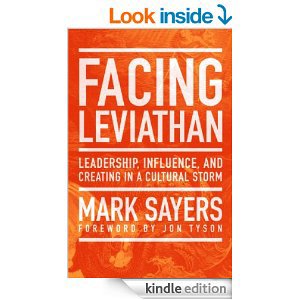Pride is our greatest enemy! It has been defined as “contending for the supremacy of God.” Basically, pride causes us to think that we no longer need God. We tell ourselves we are ok. Pride causes us to go blind to our need for anything or anyone other than ourselves. Even as we grow in holiness, pride has a way of implanting in us and germinating into a desire for recognition of our new found godliness.
The Bible is fairly clear about the dangers of Pride. Solomon writes that pride goes before destruction, and a haughty spirit before a fall (Proverbs 16:18). Jesus declared that pride was one of the things that comes from within a person and defiles him (see Mark 7:14-23). And James writes that God opposes the proud, but gives grace to the humble (James 4:6).
So how do we grow in humility? First and foremost, we look to the cross. John Stott writes:
Every time we look at the cross Christ seems to say to us, “I am here because of you. It is your sin I am bearing, your curse I am suffering, your debt I am paying, your death I am dying.” Nothing in history or in the universe cuts us down to size like the cross. All of us have inflated views of ourselves, especially in self righteousness, until we have visited a place called Calvary. It is there, at the foot of the cross, that we shrink to our true size.
The deeper we go in understanding the cross, the more humility will ooze from our souls. The cross is where our greatest need was satisfied. The debt of our sin which we could not pay, was paid by Christ. God justified us, redeemed us, reconciled us, and is now transforming us by His grace and grace alone through the cross of Christ. It is not by our works or merit, but by grace in which we are saved.
Second, we grow in humility when we understand that our sin is just as great as those around us. Why is it that we see the sin in our lives akin to nothing more than a small habit problem while we view the sin of others as that which deserves God’s discipline? Collin Hansen, in his new book Blind Spots, writes that “if your sin is somehow less deserving of judgment that someone else’s, you’re in trouble.”
Third, growth in humility happens as we begin to preach the gospel to ourselves daily. The emphasis here needs to be on DAILY. Milton Vincent writes:
Nothing suffocates my pride more than daily reminders regarding the glory of my God, the gravity of my sins, and the crucifixion of God’s own Son in my place. Also, the gracious love of God, lavished on me because of Christ’s death, is always humbling to remember, especially when viewed against the backdrop of the Hell I deserve.
Preaching the gospel daily to yourself means you must find time to open God’s word and read it. And hopefully, not just read it, but study it, memorize it, and meditate on it. We need to be reminded each day of who we are and what God has done for us by the cross.
Finally, we must understand that growth in humility is a supernatural undertaking. It is dangerous to think that you have the power within you to develop an attitude of humility. It is our union with Christ, as His Spirit works within us, that transforms us. No doubt, God uses the daily preaching of the gospel to ourselves, etc…, but we must understand that it is God who works in us to conform us to the image of Christ.
Defeating pride is humbling yourself before God. It’s accepting Him at His word and trusting Him to do for you what you can’t do for yourself. It’s allowing His Spirit to change you to be that for which you were created.
And as we pursue Christlike humility, we do well to remember that everyone who exalts himself will be humbled, but the one who humbles himself will be exalted (Luke 18:14).
Leave a Comment






